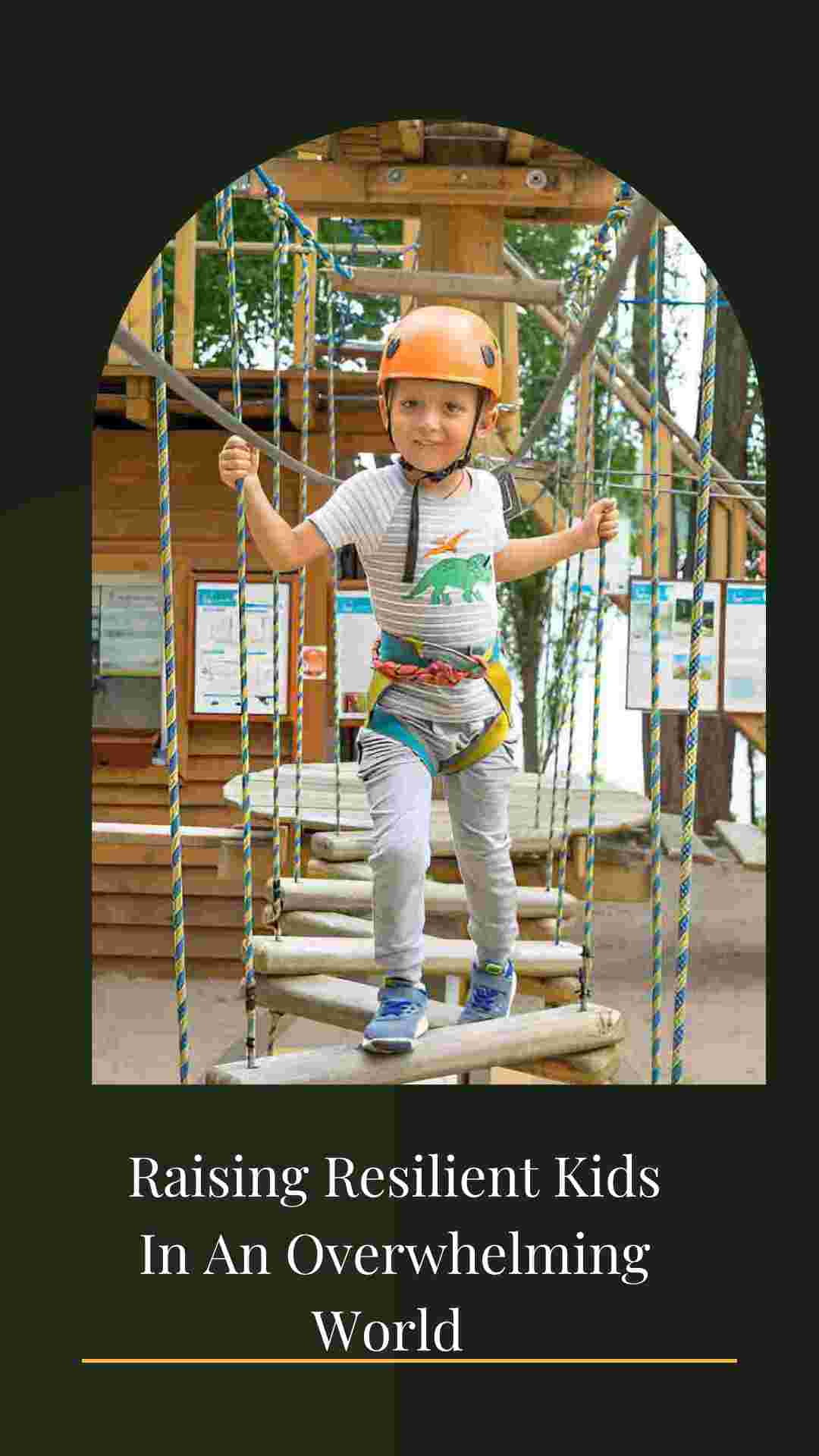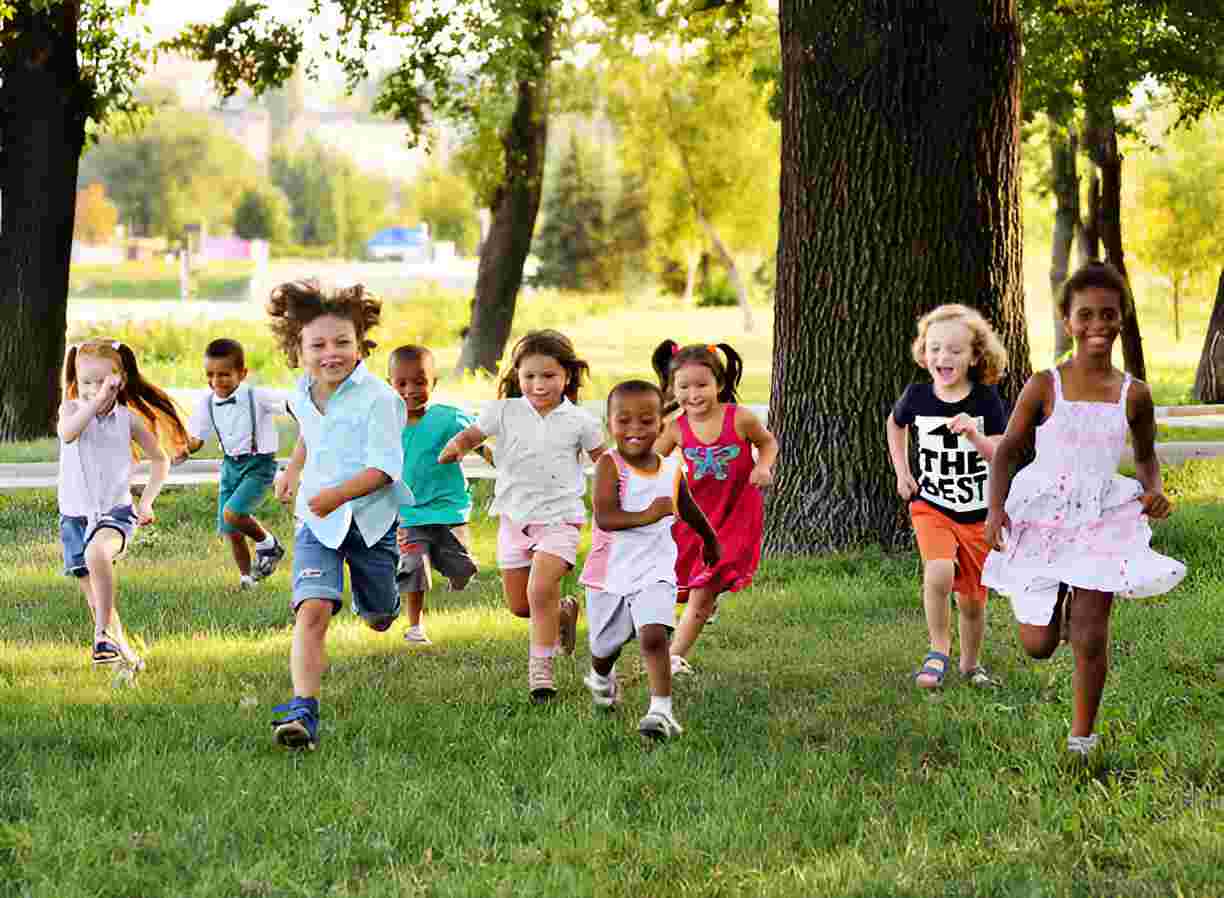Raising Resilient Kids In An Overwhelming World
In a world that moves at breakneck speed—where screens demand attention, pressures mount, and uncertainty seems to lurk around every corner—raising kids who can not only survive but thrive feels like an uphill battle.
From academic stress and social pressures to digital distractions and emotional struggles, kids are constantly navigating a complex environment. We want our children to thrive, not just survive, but how do we equip them to navigate life’s inevitable storms without shielding them so much that they never learn to weather a little rain?
But what if the key to helping our kids navigate this overwhelming world isn’t shielding them from every challenge—it’s teaching them how to bounce back from them? Resilience isn’t just a buzzword; it’s the secret sauce that can help our children face life’s ups and downs with courage, adaptability, and grit.
So, how do we raise resilient kids in a world that often feels like it’s spinning out of control? This article explains how to nurture resilience in our kids, helping them not only face an overwhelming world but emerge from it stronger, kinder, and more capable than ever.

Raising Resilient Kids in an Overwhelming World
Life today moves fast. Kids are growing up in a world filled with social media pressures, academic stress, and an ever-changing environment. As parents, we want to protect our children, but we also need to equip them with the strength to navigate challenges independently. Resilience—the ability to bounce back from difficulties—isn’t something kids are born with; it’s something we help them develop.

1. Let Them Struggle (A Little)
I remember when my son, Owen, was learning to tie his shoes. He would get frustrated, throw the laces down, and declare, “I can’t do it!” My instinct was to step in and tie them for him. But instead, I took a deep breath and said, “Try again.” After several attempts (and some tears), he finally got it. The joy on his face was priceless!
Don’t miss:
2. Model Resilience Yourself
Kids learn by watching us. If we crumble under stress, they will too. I once had a work deadline that completely overwhelmed me. Instead of panicking in front of my kids, I said, “This is a lot, but I’ll break it into smaller tasks and get through it.” My daughter, who had been anxious about a school project, later told me, “I’m going to do my project the way you did your work—one step at a time.”
3. Teach Them to Manage Emotions
One day, my youngest came home from school upset because a classmate didn’t invite her to a party. Instead of brushing off her feelings, I validated them: “That must feel really disappointing.” Then we talked about ways to cope—calling a friend, doing something she enjoyed, and reminding herself that one event doesn’t define her friendships.
4. Encourage Problem-Solving
When kids hit roadblocks, it’s easy for them to feel stuck. I once overheard my son complain about a difficult group project: “No one listens to me!” Instead of fixing it for him, I asked, “What do you think would help?” After some thought, he decided to calmly suggest a different approach to his group. It wasn’t a perfect solution, but he took ownership of the problem. Encouraging kids to think of solutions builds confidence.
5. Let Them Take Healthy Risks
Climbing a tree, speaking in front of the class, trying out for the soccer team—these can all feel scary to kids. But resilience grows when they take risks and push past fear. I still remember how nervous my daughter was to audition for the school play. “What if I forget my lines?” she worried. I told her, “Even if you do, you’ll learn and try again.” She didn’t get the lead role, but she did get a part, and she was proud of herself for trying. Lell
6. Focus on Effort, Not Just Success
When my kids were younger, I used to say, “Great job!” for everything. But I realized that praising effort matters more than praising results. Instead of “You’re so smart!” I started saying, “You worked really hard on that!” This shift helped them see that mistakes are part of learning.
Resilient kids don’t fear failure because they know their worth isn’t tied to perfection—it’s tied to effort.

How do you raise resilient kids?
1. Model Resilience Yourself
Kids learn more from what they see than what they’re told. If you want your child to be resilient, show them how it’s done. Let them see you handle stress, failure, and disappointment with grace and determination.
A friend of mine lost her job unexpectedly. Instead of hiding her emotions, she was honest with her kids about feeling sad and scared. But she also showed them how she was taking steps to move forward—updating her resume, networking, and staying positive. Her kids saw her resilience in action and learned that setbacks are temporary and manageable.

2. Let Them Fail (and Learn from It)
It’s natural to want to protect your child from failure, but failure is one of the best teachers. When kids experience failure and learn to recover, they build confidence in their ability to handle challenges.
3. Teach Problem-Solving Skills
Resilient kids are problem-solvers. Instead of rushing to fix everything for them, guide them to come up with their own solutions.
4. Encourage Emotional Expression
Resilience isn’t about being tough or suppressing emotions. It’s about understanding and managing emotions. Teach your child that it’s okay to feel sad, angry, or scared, and show them healthy ways to express those feelings.
5. Foster a Growth Mindset
Kids with a growth mindset believe they can improve through effort and learning. Praise their effort, not just their achievements, and help them see challenges as opportunities to grow.

6. Build Strong Relationships
Resilient kids have a strong support system. Encourage them to build meaningful relationships with family, friends, and mentors. Knowing they’re loved and supported gives them the confidence to face challenges.
7. Encourage Independence
Resilience comes from believing in your own abilities. Give your child age-appropriate responsibilities and let them make decisions. This builds confidence and a sense of control over their life.
8. Teach Coping Strategies
Life can be stressful, even for kids. Teach them healthy ways to cope with stress, like deep breathing, journaling, or talking to someone they trust.
My son gets anxious before soccer games. I taught him a simple breathing technique: inhale for 4 counts, hold for 4 counts, exhale for 4 counts. Now, he uses it whenever he feels nervous, and it helps him stay calm and focused.
9. Celebrate Effort, Not Just Success
When kids are praised only for winning or achieving, they may fear failure. Instead, celebrate their effort, perseverance, and progress.
My daughter once spent weeks practicing for a piano recital. On the day of the performance, she made a few mistakes. Instead of focusing on the errors, I said, “I’m so proud of how hard you worked. You didn’t give up, even when it was tough.” She beamed with pride and was motivated to keep practicing.
10. Create a Safe, Loving Environment
Resilience grows best in an environment where kids feel safe, loved, and accepted. Let them know that no matter what happens, you’re there for them.
What are the 7 C’s of resilience for kids?
The 7 C’s of resilience for children are a set of qualities that help them navigate challenges and adversity. They include:
- Competence: The ability to handle tasks successfully. Children who feel competent are more likely to face challenges with confidence.
- Confidence: The belief in their own abilities to manage and overcome challenges. Confidence helps children approach difficulties with a positive mindset.
- Connection: Having strong, supportive relationships with family, friends, and other significant figures. These connections provide a safety net for children in times of stress.
- Character: Developing a sense of right and wrong, personal values, and a sense of integrity. Character helps children make good decisions even when under pressure.
- Coping: The ability to manage stress and emotions effectively. Children with strong coping skills can handle stress in healthy ways.
- Control: A sense of control over their actions and decisions. Children who feel they have control are more likely to take proactive steps in overcoming challenges.
- Courage: The willingness to take risks and try new things, even in the face of fear or uncertainty. Courage helps children push through difficult situations.
Resilience is about more than bouncing back—it’s about moving forward with hope, adaptability, and a sense of purpose. As parents, caregivers, and mentors, our role is to provide a steady foundation while allowing our kids the freedom to explore, fail, and rise again. In doing so, we’re not just raising resilient children; we’re nurturing a generation capable of facing the world with courage, compassion, and an unshakable belief in their own strength. Let’s draw the curtain here on the topic: Raising Resilient Kids In An Overwhelming World

